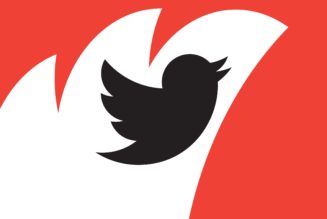
You know that chumbox of weird garbage that appears at the bottom of most news sites, including this one? You know the one! It’s labeled “Promoted stories” or “Around the web.” It’s got headlines like: “1 Weird Trick to Lose Weight,” “You Won’t Believe What [STAR NAME HERE] Looks Like Today!,” and “Throw this vegetable out!” There are two major players in the field — Taboola and Outbrain — and the Justice Department has approved their merger.
Why are they called chumboxes? Well, chum is fishbait — you throw decomposing fish guts, blood, and bones into the water to lure other fish. A chumbox is like this but for humans online.
You won’t BELIEVE why publishers are using them
These chumboxes exist because they’re more lucrative than other kinds of advertising: you add them to your site — that’s free! — and then make money off the unwary souls who want to know “Is CBD good for my pet?” The money is, evidently, good: besides Vox Media, Bloomberg, Business Insider, The Washington Post, CNN, and more feature these boxes at the bottoms of their stories.
“This is clearly working, somehow,” said Eric Hadley, former marketing chief at Outbrain, told The New York Times last year. “You may laugh at these ads, but people click on them.”
But maybe the money isn’t good enough? When the merger was announced last year, TechCrunch described its goal as increasing the number of customers and size of the audience in order to compete against Facebook and Google. According to TechCrunch, each company was “already clearing $1 billion in revenues annually.”
[Gallery] The most-celebrated chumbox providers
Outbrain shareholders get $250 million in cash and 30 percent of the stock in the combined company, which will be called Taboola and will be led by Taboola CEO Adam Singolda.
When the merger was announced, the Justice Department “spent months examining company documents, interviewing top executives and talking to both companies’ customers,” The Wall Street Journal reported. Ultimately, the DOJ waved the merger through because “other companies were getting into the sponsored-content game,” the Journal said. Those competitors include Gemini (owned by Verizon) and a new, unnamed product from Google, according to the WSJ.
Human-sized bird has one weird trick for dodging antitrust allegations
The US antitrust inquiry isn’t the only one. The UK’s Competition and Markets Authority is looking into whether the merger will decrease competition in digital advertising. The acquisition is part of a larger wave of advertising industry consolidation that began in 2019 and may be accelerated by the cratering ad market in the pandemic. Ad spending is expected to slump 10 percent this year, The Economist reports.
Scale is important for competing with Facebook and Google in ads. Both companies are behemoths, and combined, they represent two-thirds of worldwide digital ads, The Economist reports.
Surgeon reveals a simple method for merging chumboxes
Chumboxes have an advantage that Google and Facebook don’t: they are placed on the publisher’s own page. Facebook and Google, on the other hand, drive traffic to articles, but that traffic might not stay to click around. Please enjoy the chumbox at the end of this article.









